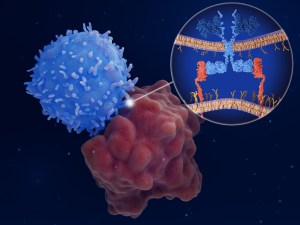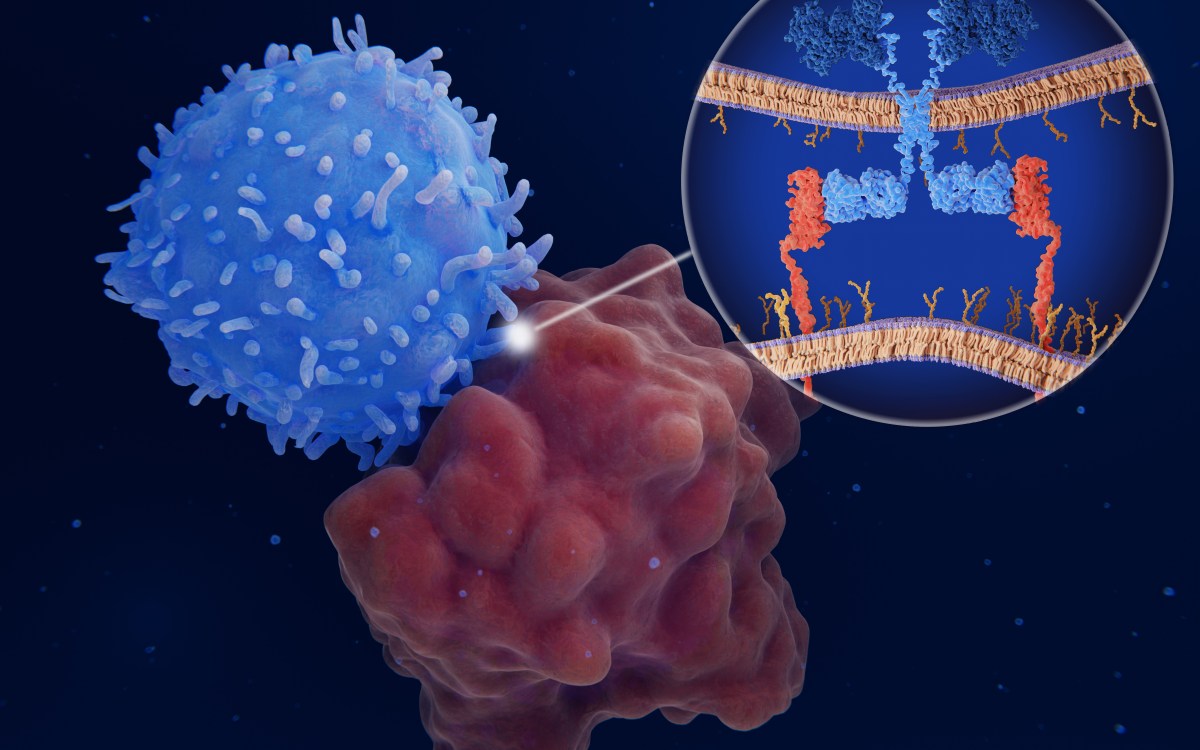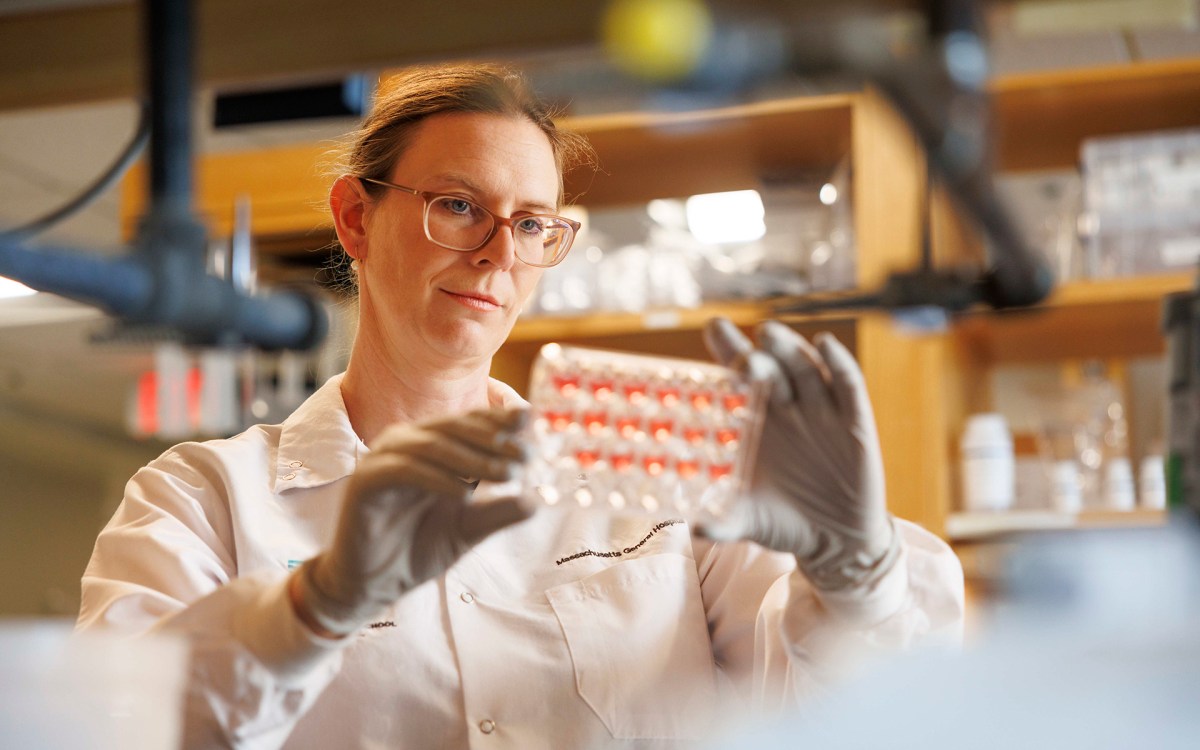
Belmont High School students Jim Gehrig and Annie Guo (photo 1) begin an experiment in the lab of Alain Viel, the director of Northwest Undergraduate Laboratories. Revere High School students Victoria Guarino (left) and Jennifer Fajardo (photo 2) refer to some notes, and Chelsea High School students Jasimar Sorto (left) and Nilsa Salas examine a Petri dish (photo 3).
Jon Chase/Harvard Staff Photographer
Summer in the lab
Students from local high schools get a glimpse of Harvard research
While 17-year-old Haley Greenslade’s friends were busy working the usual summer jobs — babysitting, working in movie theaters, flipping burgers — she spent her break doing something different.
Greenslade, of Masconomet Regional High School in Topsfield, was one of eight students who took part in a new internship program aimed at showing high school students how research is conducted by allowing them to work in one of Harvard’s biology labs.
“I never imagined I’d be working in a Harvard lab for the summer,” she said. “It’s just an amazing opportunity that’s been given to us. My friends are amazed by what I’m doing as compared to other summer jobs. “
The program is co-sponsored by Harvard’s Life Sciences Outreach Program and the Howard Hughes Medical Institute. Besides Masconomet, participating high schools this year were Belmont, Chelsea, and Revere. Students spent nearly two months in the lab designing a “synthetic gene” and inserting it into living bacteria.
“This experiment is part of what we call synthetic biology,” said Alain Viel, director of Northwest Undergraduate Laboratories and a senior lecturer on molecular and cellular biology, who oversees the internship program with help from research assistant Andrew Cumming. “They’re assembling all the pieces of a gene that will go into the bacteria with all the bells and whistles it needs to be expressed.”
For the students, Viel said, the lab work offers a valuable inside look at how research really works.

“In most introductory biology courses, labs take place in a defined block of time, and have very specific goals,” he said. “This work teaches them that what’s more important is not to achieve their goal but to get some experience in terms of designing an experiment, thinking about what kind of controls you need and what kind of methods you can use. And when they get a piece of data, they have to figure out whether or not the experiment worked, and if it works, what will be the next step.”
“I feel like this is a little taste of what it’s like to work in a lab,” said 16-year-old Nilsa Salas of Chelsea High School. “I actually want to go into forensic science, so this is really cool — when I was told I was getting into the program I was really excited.”
“It’s transformative,” said Robert Lue, professor of the practice of molecular and cellular biology and director of Life Sciences Education. “One of the reasons we started this program is because we’ve found that research is one of the best ways for students to become engaged, and sustain an engagement with science.
“For a number of years, we’ve worked to change the freshman science courses at Harvard, and we’ve made it very clear that, as a freshman, you’re welcome to do research,” he added. “Harvard has made an enormous push, in the life sciences in particular, to get students started doing authentic research when they’re ready, and if that’s in the first semester of their freshman year, then that’s great.”
In part, Lue said, the changes came from the realization that, as science continues to push boundaries, faculty members and students alike will likely have to learn new skills and concepts on the fly.
“What we’ve realized is that the old idea — you take a whole bunch of courses, and then you’re ready to do science — is, for one thing, unnecessary, but it’s also unproductive,” Lue said. “What we’ve found is that, for freshmen and for high school students, even if they have little background, there’s nothing like an actual research project to drive them and motivate them to go out and find what they need to know.”
While the program could accommodate only eight students this year, Lue said he is already working on ways to expand opportunities.
“These efforts aren’t just a pipeline for Harvard, but they’re a pipeline to higher education in general,” he said.
“I believe these sorts of experiences are even more valuable than a class, because they’re learning through the actual experience of the field,” he added. “So it’s all about knowledge, it’s all about the experience, and it’s all about being inspired by what happens. What we want to do is inspire them, and that’s enormously important.”





